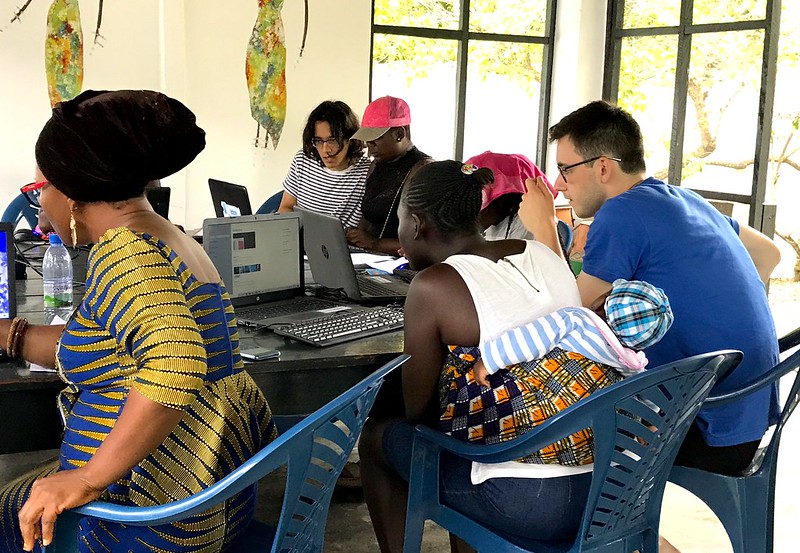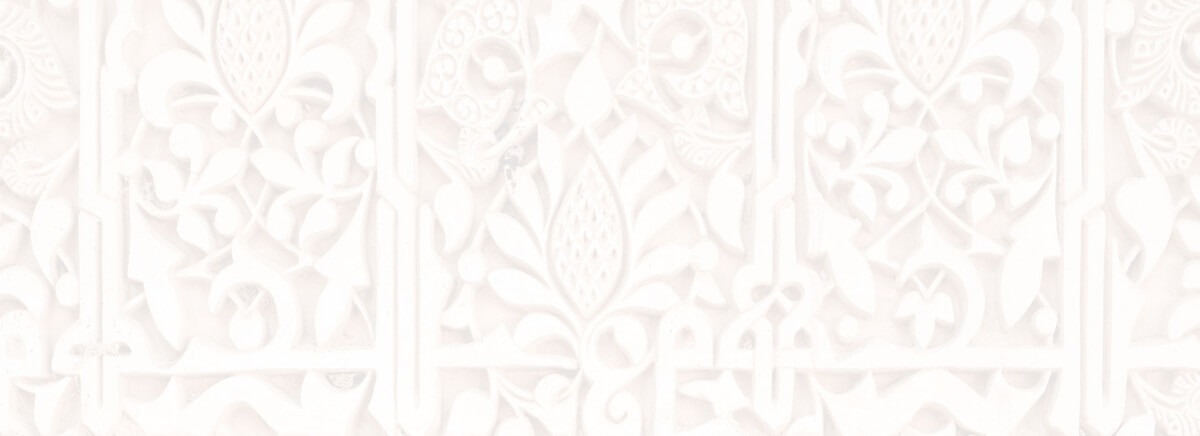

Volunteer to advance gender equality
Contribute to global gender equality initiatives.
Gender equality is key to economic development, a better quality of life and the realisation of human rights for millions of people. Volunteers on our gender equality programs work directly with women and girls in schools, NGOs and community groups to support their skill and agency in language, literacy, leadership, nutrition, reproductive health and economic enterprise.
Gender equality means that all genders are valued equally and fully enjoy their human rights. It’s estimated that women make up half of the world’s population but generate less than 40 percent of its wealth (World Bank, McKinsey Global Institute). Ongoing gender inequality has cost the global economy about USD12.0 trillion in lost income (McKinsey Global Institute). It also means that individuals and their communities are less likely to improve their quality of life through education, health and economic opportunity.
With GVI gender equality volunteer programs, participants contribute to women’s empowerment by creating and delivering innovative and locally-led content to women and girls. Our programs focus on improving ICT (information and communication technologies), enterprise and English language skills, and providing a safe space for women and girls to address issues related to their health and well-being. GVI aims to support our partners to increase the community’s understanding of gender equality in a way that is both collaborative and locally led.
As a participant, you could spend your days at schools working with girls to grow their reading, writing and numeracy skills, and to provide fun after-school sessions on health, self-confidence and leadership. You could assist with teaching and mentoring women in conversational English, basic maths and financial skills, as well as in crafts, cooking and sewing. You might also go with community health workers to deliver door-to-door public health information targeting women.
To support our long-term objectives to empower women and girls to achieve their full potential, in the past we have worked hand-in-hand with a number of partner organisations, including the Ghana Girl Guides Association, SASANE (in Nepal) and AMICREO (Asociacion Mujeres Innovadoras y Creadoras de Oportunidades) which is supported by the Mar a Mar association in Costa Rica. Working in collaboration with partner organisations gives participants the chance to understand the local socio-economic context, and to build essential skills in activity design, facilitation and research, while immersing themselves in a new culture and making a tangible impact on enterprising organisations.
Filter programs








While all of GVI’s volunteer abroad programs align with the United Nations Sustainable Development Goals (UN SDGs), our gender equality volunteer programs contribute specifically towards Goal 4: Quality Education and Goal 5: Gender Equality.
Our programs aim to advance the following key dimensions of gender equality: access to economic opportunity and assets, women’s leadership, and health. By collaborating with schools, NGOs and women’s groups, GVI supports women and girls to improve their agency and decision-making autonomy in their daily lives. This in turn contributes to greater awareness and improved understanding of gender equality amongst women and girls – both directly and in the broader community.
We align to UN SDG 5: Gender Equality through our understanding and impact of our gender equality programs, and use results-based monitoring and evaluation approaches. Components related to UN SDG 5 which are particularly important include access to health (including sexual and reproductive health and rights) and the increased use of enabling technology for women’s empowerment. In 2019 we worked with 5,252 women in vocational skills training and supported 264 to better understand entrepreneurship and business management. The same year our health and sanitation programs distributed 155 sanitation kits to women.
In line with GVI’s ten ethical commitments, our gender equality programs are locally-led and grounded in the needs of the community and our partners. Gender equality is a complex concept that has unique connotations in each context. Using collaborative scoping and design methods, we make sure to understand the local context before designing and implementing projects and activities.
Please note that GVI doesn’t support orphanage volunteering in any of our program locations. For more information see our stance on orphanage volunteering and our Child and Vulnerable Adult Protection Policy.
We operate volunteer programs with a focus on gender equality in the following countries:
Cambodia
Equal access to productive resources – skills, information and assets – is a cornerstone of gender equality. In the tourist-heavy area of Siem Reap, supporting women to improve their English comprehension and speaking unlocks professional opportunities that they would otherwise struggle to access.
Participants can plan, develop and deliver English classes to women, and may work with children at GVI’s school partners and staff of local organisations. Participants may also run workshops or sessions for women on professional skills.
Costa Rica
We promote gender equality in Costa Rica by supporting women and girls to identify and leverage economic opportunities. Based on the community’s needs, participants may deliver sessions on English language comprehension, personal and professional development.
Ghana
Ghana has seen some improvements in women’s rights, with women’s leadership in the national public sector increasing over time. However, women still lag far behind men in skills such as maths, science and ICT. Women and girls also spend much more of their time on unpaid care work – like looking after family members – and have not achieved full agency over their sexual and reproductive health and rights (UN Women).
GVI’s women’s empowerment programs in Ghana target these specific areas by supporting participants to create and deliver women’s economic empowerment activities – including computer skills, setting and achieving professional goals, and vocational training in crafts and cookery. Participants may work with the Ghana Girl Guides Association or other partners to strengthen young girls’ leadership capabilities or deliver sanitation and reproductive health sessions at our partner schools.
Nepal
Our gender equality program in Nepal works with women in community groups, girls in partner schools, and human trafficking survivors to improve their access to opportunities and ultimately their ability to exercise their economic rights.
Participants assist with mentoring women’s groups in conversational English, finance and maths, enterprise development, and gender equality. In partnership with SASANE, our work with human trafficking survivors is especially important as it supports their economic independence and livelihoods. Participants could develop and deliver sessions on healthcare and safety, as well as knitting and sewing. At schools, our program focuses on confidence and leadership, sports, crafts, and adolescent sexual and reproductive health and rights.
South Africa
In South Africa, we aim to assist with breaking the cycle of intergenerational poverty by ensuring women from disadvantaged communities have access to equal education, public health and income-generating opportunities.
Needs identified by the community in the past include basic computer skills education and sewing classes. Participants could also assist with hosting alternative income generation skills workshops and offering additional educational support to young girls in local schools. During the school holiday period, all our participants come together to work at a local library to provide a safe educational space for children of all ages. Activities could include tutoring, reading, arts & crafts, sports and wellbeing. When possible, the team also runs soup kitchens in the community.
Our bases are located in some of the most beautiful countries in the world. With most volunteer work taking place during regular working hours, you’ll have plenty of time to visit the surrounding areas and immerse yourself in the culture of the country you’re based in.
Cambodia
Our Siem Reap base is located in one of Cambodia’s most spectacular and fascinating cultural and conservation areas. On the weekends, you can visit nearby national parks, temples and monuments, including the Angkor Archaeological Park, or hike to a waterfall. Siem Reap is filled with bustling markets and restaurants serving Khmer and Western cuisine.
Costa Rica
Our Costa Rica base is located in Cartago, a town in the Cartago Province. Cartago has a rich history and was the first capital city of Costa Rica. You can get a sense of this ancient town by visiting Las Ruinas de la Parroquia, the ruins of a Roman church, or the more famous Basilica de Nuestra Senora de Los Angeles, another church which was built in the 17th century and restored in the 1920s. If you are interested in the area’s natural heritage, you can spend time at the Irazu Volcano National Park which features one of Costa Rica’s more recently active volcanoes, or you can simply enjoy the surrounding tropical rainforests and mountain ranges.
Ghana
Ghana’s rich culture and beautiful beaches will be right on your doorstep at our Kokrobite base. If you enjoy the arts, then you can get involved in and watch traditional dance, music, acrobatics and festivals, or buy arts, crafts and gifts at the Accra, Kasoa, Kineshie or Mallam markets.
Nature lovers can visit wildlife and conservation sites like the Kakum National Park or spend a weekend in the Volta Region and explore the area’s waterfalls, canopy walks and tropical mountains.
Nepal
Pokhara, where our base is located, is the gateway to the Annapurna region and is known for its spellbinding beauty. Pokhara is unique – with numerous native and religious groups, rapid urbanisation and development of tourism being a major contributor to the local economy.
During your stay you could learn how to make Tibetan and Nepali dumplings. Enjoy Fewa Lake and the surrounding Annapurna and Machhapuchhre mountains by biking to and around the lake, or taking in the scenery from a rowboat. We also offer two trekking opportunities in Nepal: Annapurna sanctuary trek and Everest base camp trek.
South Africa
Live and work in Cape Town, one of the most popular destinations in the world, renowned for its beauty, history and cultural diversity. Hike to to the top of Table Mountain (or simply use the cable car), spend a day on one of the city’s many beaches or take a ferry from the V&A Waterfront to UNESCO World Heritage site, Robben Island – the Apartheid-era prison where human rights activist, Nobel Peace Prize winner and former president Nelson Mandela was imprisoned.
What age do I need to be to join a program?
We welcome participants of all ages! While there’s no age limit to join our programs, we do have a minimum age of 18, with the exception of our under 18 programs that are specifically designed for teens between the ages of 15 and 17, and our family programs for 14+ (when accompanied by a guardian).
Can a GVI program benefit my career?
Absolutely. Volunteering on a GVI gender equality program offers hands-on experience in one of the most important subject areas of international development. Participants will learn how to plan, design and deliver workshops and mentoring sessions – strengthening their organisation, communication and facilitation skills, all of which are foundational for beginning a career in global development. Living and working in a different country will also prepare participants for the multi-cultural environment of global development.
Are there any language requirements?
We don’t have any language requirements, but you might pick up a second language during the course of your program abroad.
If we have any other questions head on over to our FAQs page or reach out to our enrolment team who will be happy to answer any questions you have.
Filter programs










